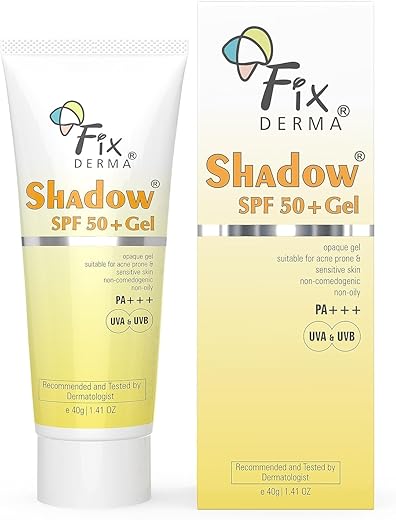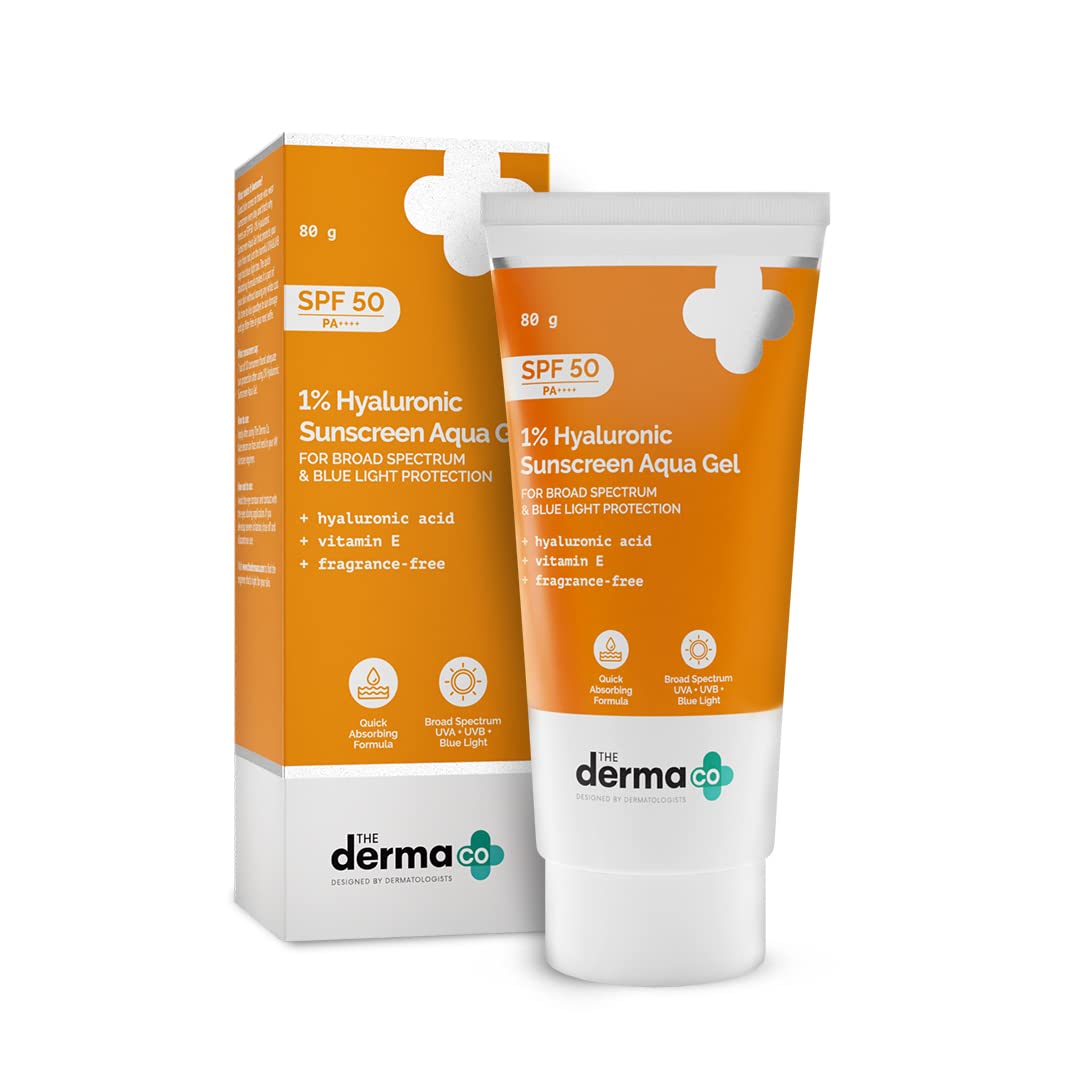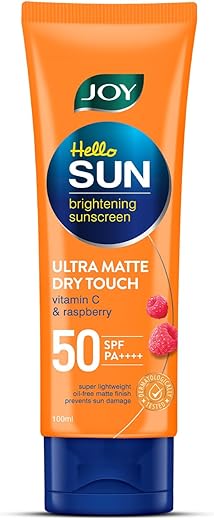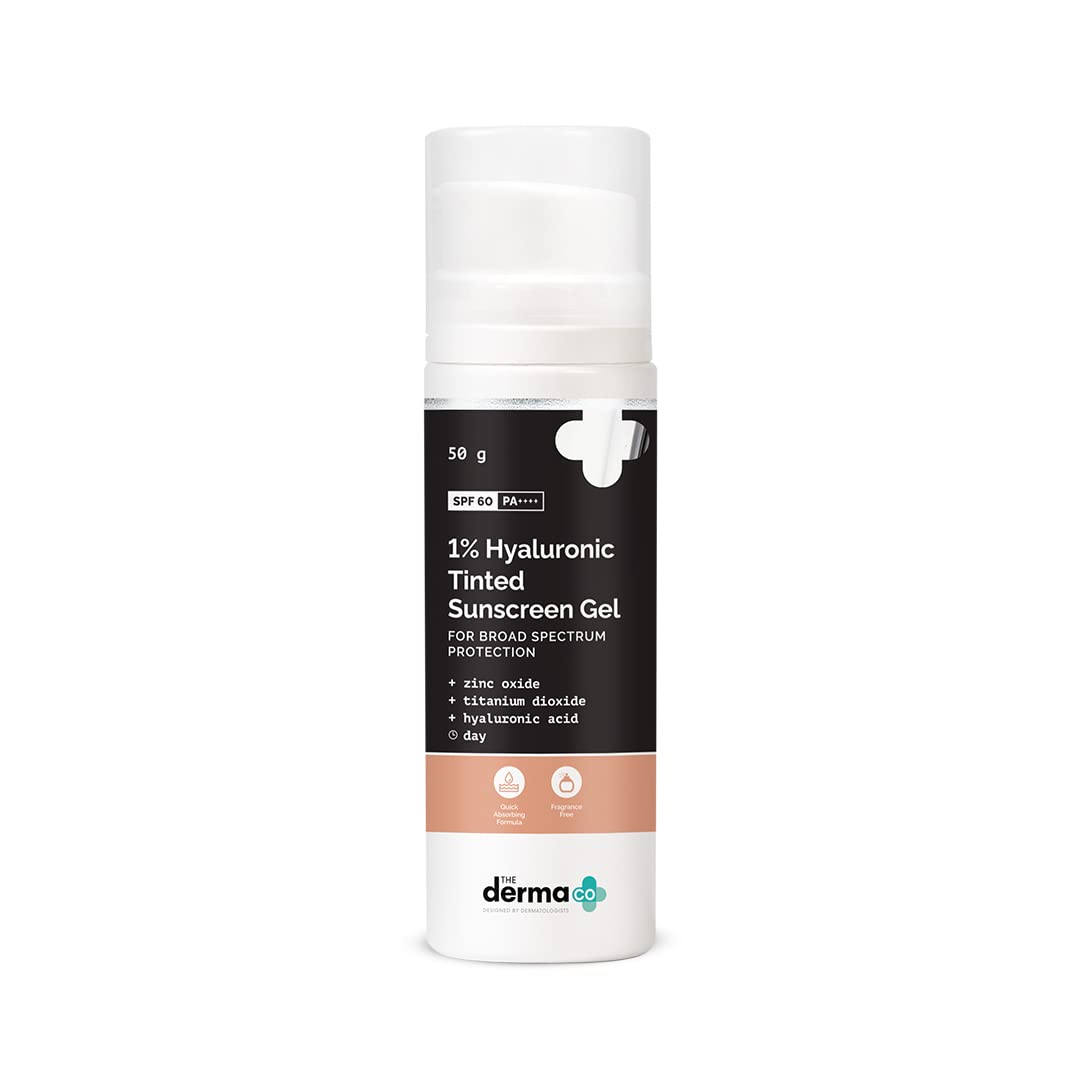Broad Spectrum Sunscreen
Showing 1–12 of 14 results

Cos-IQ SPF 50 SunProtect Serum | Matte, Oil-Free, Water-Resistant (30ml)

Dermalogica Dynamic SPF 50 | Age-Fighting Moisturizer with Hyaluronic Acid & White Tea (50ml)

Fixderma Shadow Sunscreen SPF 50+ PA+++ Gel For Oily Skin, Body & Face, Broad Spectrum For Uva & Uvb Protection For Unisex, Non Greasy & Water Resistant, 40gm (Pack of 1)

Garnier SuperUV SPF 50 Mist | Broad Spectrum, No White Cast, Over Makeup, Lightweight (75ml)

Neutrogena Ultra Sheer Sunscreen SPF 50+ | Broad Spectrum UVA/UVB | Blue light protect | No White Cast | Water resistant, Ultra light & Non sticky | Oily, Dry & Sensitive Skin | 30 g (Pack of 1)

Pilgrim 2% Niacinamide SPF 50 | Glow Boost, Non-Greasy, No White Cast, Broad Spectrum (50g)

SEASOUL SPF 50 UV Defense Cream | Brightening with Hyaluronic Acid, Glutathione & Vitamin C (100g)

The Derma Co 1% Hyaluronic SPF 50 Gel | Lightweight, Non-Greasy, No White Cast, Broad Spectrum (80g)
The Importance of Broad Spectrum Sunscreen
Sunscreen is an essential part of any skincare routine, but not all sunscreens are created equal. When it comes to protecting your skin from the harmful effects of the sun, broad spectrum sunscreen is the way to go. But what exactly is broad spectrum sunscreen, and why is it so important?
Broad spectrum sunscreen is formulated to protect your skin from both UVA and UVB rays. UVA rays are the ones that penetrate deep into the skin, leading to premature aging and wrinkles, while UVB rays are the primary cause of sunburn. Both types of rays can contribute to the development of skin cancer, which is why it’s crucial to have protection against both.
Why Broad Spectrum Matters
Many people assume that if a sunscreen has a high SPF (Sun Protection Factor) rating, it will protect them from all forms of UV radiation. However, SPF primarily measures a sunscreen’s ability to protect against UVB rays, not UVA. This is where broad spectrum sunscreen shines. By offering protection against both UVA and UVB rays, broad spectrum sunscreens provide comprehensive coverage, ensuring your skin is safeguarded from the full spectrum of harmful UV radiation.
Choosing the Right Sunscreen
When selecting a broad spectrum sunscreen, look for one with an SPF of at least 30. The American Academy of Dermatology recommends an SPF of 30 or higher, as it blocks 97% of UVB rays. While higher SPF values offer slightly more protection, the difference is minimal, and no sunscreen can block 100% of UV rays.
In addition to broad spectrum and SPF, check the label for other protective ingredients like zinc oxide or titanium dioxide, which act as physical blockers, reflecting UV rays away from the skin.
Applying Sunscreen Correctly
Using broad spectrum sunscreen is only effective if it’s applied correctly. Here are some tips for optimal protection:
- Apply Generously: Use about a shot glass-sized amount (approximately 1 ounce) to cover your entire body.
- Don’t Forget Key Areas: Pay special attention to often-missed spots like the ears, back of the neck, and tops of the feet.
- Reapply Regularly: Sunscreen should be reapplied every two hours, or immediately after swimming, sweating, or towel drying.
- Use It Daily: UV rays can penetrate clouds and glass, so it’s important to wear sunscreen every day, regardless of the weather.
FAQs
1. What does “broad spectrum” mean?
Broad spectrum means the sunscreen protects your skin from both UVA and UVB rays. UVA rays cause premature aging, wrinkles, and dark spots, while UVB rays are responsible for sunburn. Both types of rays can contribute to skin cancer, so broad spectrum sunscreen offers comprehensive protection.
2. What’s the difference between UVA and UVB rays?
- UVA Rays: These penetrate deep into the skin and are responsible for premature aging, hyperpigmentation, and long-term skin damage. They can also pass through windows and clouds.
- UVB Rays: These primarily affect the outer layer of the skin and cause sunburn. They play a key role in the development of skin cancer.
Broad spectrum sunscreen shields your skin from both types of rays.
3. Is broad spectrum sunscreen the same as SPF?
No. SPF (Sun Protection Factor) measures how well a sunscreen protects against UVB rays, which cause sunburn. Broad spectrum, on the other hand, indicates that the sunscreen also protects against UVA rays. Always look for a sunscreen that is both broad spectrum and has an SPF of 30 or higher.
4. What SPF should I use?
Dermatologists recommend using a broad spectrum sunscreen with an SPF of at least 30. SPF 30 blocks about 97% of UVB rays, while higher SPFs (like 50) block slightly more, but no sunscreen can block 100% of UV rays.
5. Can I use broad spectrum sunscreen on my face?
Yes! Broad spectrum sunscreens are safe for use on the face and are especially important for preventing premature aging and dark spots. Look for lightweight, non-comedogenic formulas designed for facial use to avoid clogging pores.
6. Do I need broad spectrum sunscreen on cloudy days?
Yes. Up to 80% of the sun’s UV rays can penetrate clouds, so you still need protection even when it’s overcast. UVA rays can also pass through windows, so wearing sunscreen indoors is a good idea if you’re near a window.
7. How often should I reapply broad spectrum sunscreen?
Reapply sunscreen every two hours, or immediately after swimming, sweating, or towel drying. Even water-resistant sunscreens lose their effectiveness over time, so regular reapplication is key.
8. Is broad spectrum sunscreen safe for kids?
Yes, but for children under six months, consult a pediatrician before using sunscreen. For older kids, choose a broad spectrum sunscreen with SPF 30 or higher, and opt for mineral-based formulas (with zinc oxide or titanium dioxide) for sensitive skin.
9. Can I use broad spectrum sunscreen if I have dark skin?
Absolutely. While darker skin has more natural melanin, which provides some protection against UV rays, it’s still susceptible to damage from UVA and UVB rays. Broad spectrum sunscreen helps prevent hyperpigmentation, dark spots, and skin cancer in all skin tones.
10. What’s the difference between chemical and mineral broad spectrum sunscreens?
- Chemical Sunscreens: These absorb UV rays and convert them into heat. They’re often lightweight and easy to apply but may irritate sensitive skin.
- Mineral Sunscreens: These contain zinc oxide or titanium dioxide, which sit on the skin’s surface and physically block UV rays. They’re gentler and ideal for sensitive skin but can leave a white cast.
Both types can be broad spectrum, so choose based on your skin type and preferences.
11. Does broad spectrum sunscreen expire?
Yes. Most sunscreens have a shelf life of about three years. Check the expiration date on the bottle, and discard any sunscreen that has changed in color, consistency, or smell.
12. Can I wear makeup over broad spectrum sunscreen?
Yes! Let the sunscreen absorb into your skin for a few minutes before applying makeup. You can also use makeup products with SPF, but they shouldn’t replace your broad spectrum sunscreen.
13. Is broad spectrum sunscreen enough for all-day protection?
No. While broad spectrum sunscreen provides excellent protection, it’s not a one-time application. Reapply every two hours, and pair it with other sun protection measures like wearing hats, sunglasses, and seeking shade during peak sun hours (10 a.m. to 4 p.m.).
14. Can I use broad spectrum sunscreen for outdoor activities?
Yes! Broad spectrum sunscreen is ideal for outdoor activities like hiking, swimming, or sports. Look for water-resistant formulas if you’ll be sweating or in the water.
15. Does broad spectrum sunscreen prevent tanning?
Broad spectrum sunscreen reduces the risk of tanning by blocking UVA and UVB rays, but it doesn’t completely prevent it. If you want to avoid tanning, reapply sunscreen frequently and limit sun exposure.




